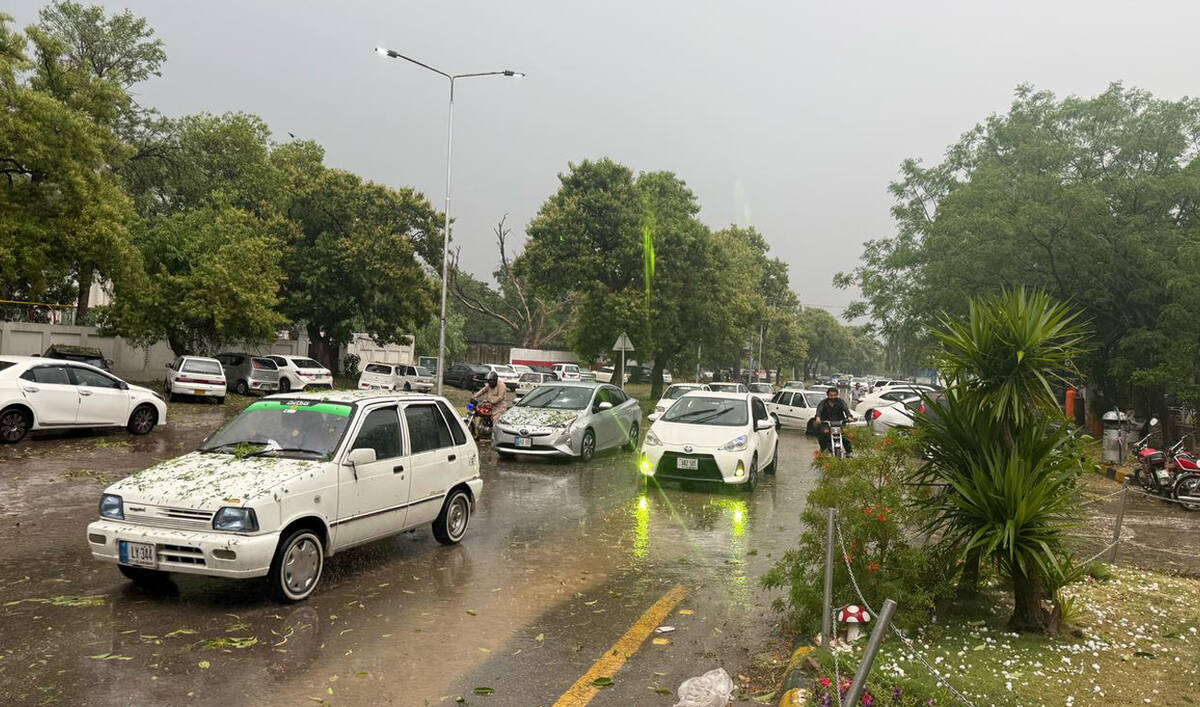Dera Allah Yar, BALOCHISTAN: As Yar Khan stood outside the outpatient ward at the District Headquarter Hospital (DHQ) in a small town in southwestern Pakistan, it was not his own stomach ache that worried him but the high fever that had for days gripped his one-year-old nephew.
Khan’s family fears the infant has one of the many infectious and water-borne diseases that have spread in the aftermath of devastating monsoon rains and floods in Pakistan.
Record rains in south and southwest Pakistan that began in mid-June and glacial melt in northern areas triggered the flooding that has killed over 1,600 people and affected nearly 33 million people in the South Asian nation of 220 million, sweeping away homes, crops, bridges, roads and livestock and causing an estimated $30 billion of damage.
Weeks after the rains stopped, large swaths of the country’s southwestern Balochistan and southern Sindh provinces remain flooded, and millions of survivors, many living in tents, makeshift shelters or under the open sky on road sides, face a host of other problems, including diseases like diarrhea, skin infections, coughs and colds, government and relief officials say.
The presence of mosquitoes and the spread of the diseases they carry, like dengue fever and malaria, have become particularly concerning.
Data from the Balochistan health department showed around 38,476 cases of malaria, skin diseases, acute respiratory infection (ARI), cholera and eye infections have been reported in Balochistan since September 17, 2022. The World Health Organization warned on Thursday a “full-scale operation” was needed in Balochistan to stem the tide of disease.
The influx of new patients daily has overwhelmed Pakistan’s already weak health system, particularly in Balochistan, the country’s poorest and least developed province.
“I have taken him to all the doctors in my village but my nephew didn’t get well,” Khan, 21, told Arab News from Dera Allah Yar city in Balochistan’s Jaffarabad division, where he had traveled from his village of Chatan, still “neck deep” in water, six kilometers away.
“Now I have brought him to the DHQ Hospital and traveled through flood water to reach Dera Allah Yar,” the daily wage laborer added.
“For too many days I have been feeling pain in my stomach,” Khan added. “I visited all doctors in my village but they were unable to diagnose what is causing my pain and why my nephew is sick.”
“In the three or four houses of my relatives, everyone is ill.”
Tania Bibi, 20, a resident of Karam Shah Goth in Dera Allah Yar, was diagnosed with a skin disease ten days ago. But her illness is the least of her worries, she said, as her four children are all ill.
“It’s been a month, we have been living on the Dera Allah Yar highway which is surrounded by contaminated flood water,” Bibi told Arab News. “There are too many mosquitoes and insects.”
She lightly touched the spots on her face: “The pimples popped up after the flood. It used to hurt a lot, it still hurts, it’s still the same.”
Bibi said her daughters and one son had been diagnosed with malaria and anemia respectively and now another son had high fever.
Doctors at DHQ Dera Allah Yar had prescribed medicines for the whole family but Bibi, whose husband is an out-of-work daily wage laborer, said she did not have money to buy them.
The hospital itself is struggling to deal with the influx of patients from surrounding areas.
“We have a shortage of medicines and staff to deal with the overburden of patients at the DHQ Hospital,” Dr. Ishma Khoso, a senior medical officer at the DHQ Dera Allah Yar, said. “Because people from Sohbat Pur district and other far-flung areas are now coming here for treatment.”
“The same water, animals are standing in it and using it, and now people are using it to wash clothes and dishes and perhaps drinking it as well,” Khoso said, adding that the hospital was facing a “200 percent increase in the number of patients suffering from water-borne diseases.”
Dr. Imran Baloch, a medical superintendent at the hospital, said at least 12 newborn babies were being regularly treated for ARI at the facility, and the number was steadily rising, creating challenges for doctors.
“There used to be 400 patients regularly coming to the hospital but now 900 plus patients are coming [daily],” Baloch said, “so we are having a lot of difficulty in managing them.”
Umar Khan Jamali, a legislator from Jaffarabad district, called the flood “one of the most severe natural disasters in the history of Pakistan,” saying no government was capable of coping with natural catastrophes on this large scale.
“The government of Pakistan and Balochistan have made international calls for assistance but unfortunately we didn’t receive any positive response, particularly in the health crisis that surfaced after the flood,” Jamali told Arab News. “The provincial health department has been utilizing all its available resources to ensure quality health services to the flood affected people.”
Meanwhile, people like Khan and his family wait for help.
“I want my nephew to be treated by senior doctors here,” Khan said, “but due to a large number of patients in the hospital, we are facing delays in medical treatment. Despite sitting outside the OPD for five hours, I am still waiting for my turn to see a doctor.”


















